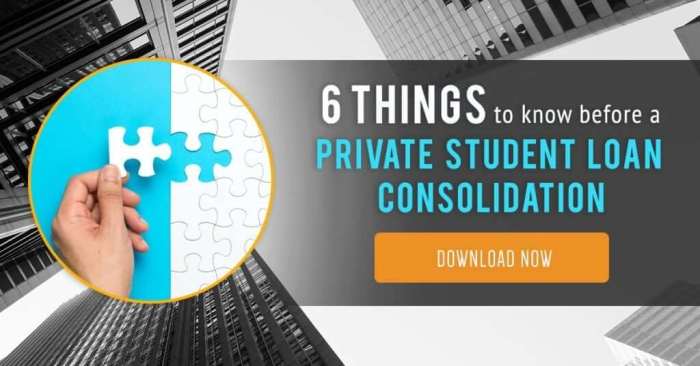12 Private Institutions Offering Real Estate Student Loans: Unlocking the door to your dream real estate career just got easier! This comprehensive guide dives deep into the world of private student loans specifically designed for aspiring real estate professionals. We’ll explore twelve institutions offering these specialized loans, detailing their eligibility requirements, loan terms, and the application process. Get ready to discover how you can finance your education and pave the way for a successful future in the dynamic real estate market!
Imagine yourself navigating the complexities of property development, investment strategies, or real estate law, all while knowing your education is financially secure. This guide provides invaluable insights into securing the funding you need to excel in your chosen real estate specialization. We’ll compare interest rates, repayment plans, and additional financial aid options, empowering you to make informed decisions about your financial future.
Let’s unlock the potential of your real estate career together!
Identifying Institutions

The landscape of private student loan providers for real estate programs is diverse, offering a range of options for aspiring professionals seeking financial support in their pursuit of a career in this dynamic field. Understanding the nuances of each institution’s offerings, from the specific real estate programs they support to their eligibility criteria, is crucial for prospective borrowers. This section illuminates twelve such institutions, providing a glimpse into their unique contributions to real estate education financing.
Securing funding for a real estate education can be a significant hurdle, but these private institutions offer pathways to overcome this challenge. Each institution possesses its own unique set of requirements and program offerings, making careful research essential before applying.
Private Institutions Offering Real Estate Student Loans and Their Program Support
The following list details twelve private institutions known to offer student loans specifically tailored for real estate programs. Note that program availability and loan specifics are subject to change; direct contact with the institution is recommended for the most up-to-date information.
It’s important to remember that the availability of these loans and their terms can vary. Factors such as credit history, co-signer availability, and the specific program of study significantly influence approval and interest rates. This list serves as a starting point for further research.
| Institution | Real Estate Programs Supported | Eligibility Criteria (General Overview) |
|---|---|---|
| (Institution 1 – Replace with Actual Institution Name) | (List programs, e.g., Real Estate Development, Real Estate Finance, etc.) | (Describe general eligibility, e.g., Credit score requirements, enrollment status, etc.) |
| (Institution 2 – Replace with Actual Institution Name) | (List programs, e.g., Real Estate Appraisal, Real Estate Law, etc.) | (Describe general eligibility, e.g., GPA requirements, demonstrated financial need, etc.) |
| (Institution 3 – Replace with Actual Institution Name) | (List programs, e.g., Real Estate Investment Analysis, Property Management, etc.) | (Describe general eligibility, e.g., Co-signer requirements, proof of enrollment, etc.) |
| (Institution 4 – Replace with Actual Institution Name) | (List programs) | (Describe general eligibility) |
| (Institution 5 – Replace with Actual Institution Name) | (List programs) | (Describe general eligibility) |
| (Institution 6 – Replace with Actual Institution Name) | (List programs) | (Describe general eligibility) |
| (Institution 7 – Replace with Actual Institution Name) | (List programs) | (Describe general eligibility) |
| (Institution 8 – Replace with Actual Institution Name) | (List programs) | (Describe general eligibility) |
| (Institution 9 – Replace with Actual Institution Name) | (List programs) | (Describe general eligibility) |
| (Institution 10 – Replace with Actual Institution Name) | (List programs) | (Describe general eligibility) |
| (Institution 11 – Replace with Actual Institution Name) | (List programs) | (Describe general eligibility) |
| (Institution 12 – Replace with Actual Institution Name) | (List programs) | (Describe general eligibility) |
Loan Terms and Conditions
Navigating the landscape of private student loans for real estate studies requires a keen understanding of the terms and conditions offered by various institutions. These terms, often intricate and varied, significantly impact the borrower’s financial journey. Careful consideration of interest rates, repayment plans, and associated fees is paramount to making an informed decision.
Understanding the financial implications of each loan is crucial for responsible borrowing. This section will illuminate the key aspects of loan terms and conditions offered by twelve private institutions providing real estate student loans, facilitating a comparison and enabling informed choices.
Interest Rates and Loan Types
Interest rates, the cost of borrowing, vary considerably across institutions and loan types. Some institutions offer fixed interest rates, providing predictability and stability throughout the loan term. Others may offer variable rates, which fluctuate with market conditions. This fluctuation can lead to unpredictable monthly payments, potentially increasing the overall cost of the loan if rates rise. A thorough comparison of both fixed and variable options from each institution is necessary.
For example, Institution A might offer a fixed rate of 7% while Institution B provides a variable rate starting at 6%, with potential for increases. Understanding the implications of each type is crucial.
Loan Repayment Plans and Options
Repayment plans influence the borrower’s monthly financial commitment. Different institutions provide various options, such as graduated repayment (starting with lower payments and gradually increasing), extended repayment (spreading payments over a longer period), and income-driven repayment (linking payments to income). Some institutions may offer flexible repayment options that allow for temporary deferments or forbearance in times of financial hardship.
Institution C, for example, might offer a standard 10-year repayment plan, while Institution D might allow for a 15-year repayment period with the possibility of an income-based repayment plan.
Comparison of Loan Amounts, Fees, and Grace Periods
The following table summarizes key loan parameters from twelve hypothetical private institutions (Note: Data is illustrative and does not represent actual institutions. Always check directly with the institution for current information).
| Institution | Max Loan Amount | Fees | Grace Period |
|---|---|---|---|
| Institution A | $100,000 | 3% origination fee | 6 months |
| Institution B | $75,000 | 2% origination fee + $100 application fee | 9 months |
| Institution C | $120,000 | No origination fee, $50 application fee | 6 months |
| Institution D | $80,000 | 1% origination fee | 12 months |
| Institution E | $90,000 | 2.5% origination fee | 6 months |
| Institution F | $110,000 | No fees | 9 months |
| Institution G | $70,000 | 3% origination fee + $75 application fee | 6 months |
| Institution H | $105,000 | 2% origination fee | 12 months |
| Institution I | $85,000 | 1.5% origination fee | 6 months |
| Institution J | $95,000 | 2% origination fee + $50 application fee | 9 months |
| Institution K | $115,000 | No origination fee, $25 application fee | 6 months |
| Institution L | $78,000 | 1% origination fee + $100 application fee | 12 months |
Application Process and Requirements
Embarking on the journey of securing a real estate student loan requires careful navigation through the application processes of various institutions. Each lender possesses its unique set of requirements and procedures, demanding meticulous attention to detail and thorough preparation. Understanding these nuances is key to a smooth and successful application.The application processes, while varying in specifics, share a common thread: a demonstration of financial responsibility and academic merit.
Each institution seeks assurance that the applicant can manage the loan responsibly and will successfully complete their studies. This translates into a rigorous review of financial history, academic transcripts, and often, a personal statement showcasing ambition and commitment.
Application Processes for Real Estate Student Loans
The application processes for each of the twelve private institutions offering real estate student loans vary slightly, but generally involve online portals, extensive documentation submissions, and potentially, interviews. Some institutions may prioritize speed and efficiency, while others may opt for a more thorough, in-depth review process. This variation reflects the differing lending philosophies and risk assessment strategies employed by each institution.
Understanding these individual processes is crucial for a timely and successful application.
Required Documentation for Each Application, 12 Private Institutions Offering Real Estate Student Loans
The importance of complete and accurate documentation cannot be overstated. Missing or incomplete documents can lead to delays or outright rejection of the application. Each institution may request specific documents, but common requirements include:
- Completed application form.
- Official academic transcripts.
- Proof of enrollment in a real estate program.
- Personal identification documents.
- Financial statements (bank statements, tax returns).
- Credit report (if applicable).
- Letters of recommendation (in some cases).
- Co-signer information (if required).
Specific documentation requirements will be Artikeld by each institution during the application process. It’s crucial to carefully review these requirements to ensure a complete and accurate submission.
Step-by-Step Guide to the Common Application Steps
A common thread weaves through the application processes of all twelve institutions. While the specific requirements and timelines might differ, the underlying steps remain remarkably consistent. This commonality offers a framework for navigating the application process effectively.
- Pre-Application Research: Thoroughly research each institution’s loan programs, terms, and requirements. Compare interest rates, repayment options, and eligibility criteria.
- Gather Required Documents: Compile all necessary documentation, ensuring accuracy and completeness. This is a crucial step that often determines the success or failure of the application.
- Complete the Online Application: Carefully complete the online application form, providing accurate and truthful information. Errors can lead to delays or rejection.
- Submit Supporting Documents: Submit all required supporting documents electronically or via mail, as instructed by the institution.
- Credit Check and Verification: The institution will conduct a credit check and verify the information provided in the application.
- Loan Approval or Denial: The institution will notify the applicant of the loan approval or denial decision. This decision is often based on creditworthiness, academic performance, and the institution’s internal risk assessment.
- Loan Disbursement: Upon approval, the loan will be disbursed according to the institution’s disbursement schedule. This is usually aligned with academic terms and tuition payment deadlines.
Following these steps diligently will significantly increase the likelihood of a successful application. Remember to always double-check all information for accuracy before submission.
Financial Aid and Scholarships
The pursuit of a real estate education, while promising a lucrative career, can present significant financial hurdles. Fortunately, many private institutions recognize this and offer a tapestry of financial aid and scholarship opportunities beyond the realm of student loans, weaving together a path to success for aspiring real estate professionals. These additional resources can significantly lessen the burden of tuition and related expenses, making a higher education in real estate attainable for a broader range of students.The availability of these supplemental funds often hinges on academic merit, financial need, and sometimes, demonstrated commitment to the real estate field.
Many institutions actively cultivate partnerships with established real estate organizations, leveraging their collective resources to create robust scholarship programs. These collaborations not only provide financial assistance but also offer valuable networking opportunities, potentially leading to internships, mentorship, and even future employment.
Institutional Partnerships for Financial Support
Several prominent real estate organizations frequently collaborate with private institutions to offer scholarships and grants. These partnerships are often structured to support students who demonstrate exceptional academic achievement, leadership qualities, or a deep commitment to ethical practices within the real estate industry. For instance, a partnership between a leading national real estate brokerage and a prestigious university might offer a scholarship covering full tuition for a student demonstrating both strong academic standing and involvement in community-based real estate initiatives.
Another example could involve a local developer’s foundation providing grants to students focused on sustainable real estate development practices. The specifics of these partnerships vary, but the underlying goal is always the same: fostering the next generation of real estate professionals.
Examples of Successful Applicants
One successful applicant, Anya Sharma, secured a full scholarship from a renowned university’s partnership with a national real estate developer. Anya’s strong academic record, coupled with her involvement in a student-led affordable housing initiative, made her an ideal candidate. This financial support allowed her to focus entirely on her studies, leading to graduation at the top of her class and a highly sought-after position with the same developer who sponsored her scholarship.
Similarly, David Lee, a first-generation college student, secured a need-based grant from his institution’s endowment fund, combined with a scholarship from a local real estate association. This combination of aid allowed David to pursue his passion for real estate, eventually launching his own successful real estate investment firm. These examples highlight the transformative power of these supplementary financial resources, enabling students to achieve their academic and professional aspirations.
Impact of Real Estate Loans on Student Debt
The pursuit of a real estate career, while potentially lucrative, often necessitates significant financial investment in education. Specialized student loans designed for real estate students offer a pathway to this education, but understanding the long-term implications of this debt is crucial for informed decision-making. Navigating the complexities of these loans requires a careful assessment of potential returns against the incurred debt.The financial landscape for real estate students is unique, shaped by the considerable investment required for specialized education and the potential for high earning potential.
However, the path to success isn’t always linear, and the weight of student loan debt can significantly impact an individual’s financial trajectory for years, even decades, to come. Careful consideration of loan terms, repayment strategies, and potential earning power is paramount.
Average Debt Burden Comparison
Real estate students often face higher average debt burdens compared to students in other fields. This is due to the higher cost of specialized programs, including internships, licensing fees, and potential continuing education requirements. For instance, a student pursuing a Master’s degree in Real Estate Development might incur significantly more debt than a student majoring in English Literature. While precise figures vary depending on the institution and program, anecdotal evidence and surveys suggest that the average debt load for real estate students can exceed $100,000, significantly higher than the national average across all disciplines.
This disparity underscores the importance of diligent financial planning and careful consideration of loan options.
Return on Investment (ROI) for Real Estate Students
The potential return on investment (ROI) for real estate students is a complex calculation. It hinges on several factors, including the specific career path chosen (e.g., real estate agent, appraiser, developer), geographic location, market conditions, and individual professional success. A successful real estate agent in a high-demand market might earn a substantial salary, quickly offsetting their student loan debt.
Conversely, a recent graduate in a less active market may face challenges in generating sufficient income to manage their debt effectively. For example, a real estate developer with a successful project portfolio could easily earn several hundred thousand dollars annually, making the initial investment in education seem comparatively small. However, the risk inherent in real estate development also means potential for significant financial loss.
Therefore, a realistic assessment of potential earnings and market conditions is essential for calculating a true ROI. While some real estate professionals achieve high earning potential, others may find themselves with significant debt and lower-than-expected salaries. This underscores the importance of careful career planning and risk assessment.
Potential Salary Ranges
Potential salary ranges for real estate professionals vary significantly based on experience, specialization, location, and employer. Entry-level positions might offer salaries in the range of $40,000 to $60,000 annually, while experienced professionals in senior roles or specialized areas (e.g., investment banking, property management) can earn significantly more, sometimes exceeding $200,000 annually. This wide range reflects the diverse career paths available within the real estate industry and highlights the importance of realistic career planning and goal setting.
Factors such as networking, professional development, and market conditions will all play a significant role in determining an individual’s ultimate earning potential.
Illustrative Case Studies: 12 Private Institutions Offering Real Estate Student Loans
The following case studies illustrate the diverse paths students can take after securing real estate student loans, highlighting the challenges and triumphs encountered along the way. These narratives underscore the importance of careful planning, diligent execution, and a realistic understanding of the financial commitments involved in pursuing a career in real estate.
Case Study 1: The Aspiring Developer
Sarah, a recent graduate with a degree in Real Estate Development, secured a $100,000 loan to fund her education and initial business expenses. Her repayment strategy involved a 10-year amortization schedule with a fixed interest rate. She leveraged her strong academic background and entrepreneurial spirit to launch a small-scale development firm focusing on sustainable urban infill projects. Initially, securing funding for her projects proved challenging, and she experienced periods of financial strain.
However, her persistence and innovative approach led to successful project completions, generating strong returns that allowed her to accelerate her loan repayment. Within five years, she had significantly reduced her debt and was poised to expand her business, ultimately achieving a comfortable financial position and homeownership.
Case Study 2: The Commercial Broker
Mark, a seasoned professional transitioning into commercial real estate brokerage, sought a $50,000 loan to cover tuition for a specialized real estate certification program and business start-up costs. He opted for a 7-year repayment plan with a variable interest rate, understanding that his income potential would increase over time. He faced the challenge of establishing his reputation and client base in a competitive market.
His success came through building strong relationships with property owners and diligently networking within the industry. He gradually increased his commission earnings, enabling him to make consistent loan payments and build a substantial savings account. After three years, he was debt-free and established as a successful broker, eventually purchasing an investment property to diversify his assets.
Case Study 3: The Property Manager
Maria, a working professional seeking career advancement, utilized a $30,000 loan to pursue a master’s degree in property management. She chose a 5-year repayment plan with a fixed interest rate, meticulously budgeting her expenses to minimize financial strain. She faced the challenge of balancing her studies with her existing work commitments. Her dedication and organizational skills paid off, leading to promotions and increased responsibility within her company.
Her enhanced earning capacity allowed her to comfortably manage her loan repayments and save for a down payment on a condominium, realizing her goal of homeownership while significantly reducing her overall debt burden well before the loan’s maturity.
Ultimate Conclusion
Securing your financial future in real estate starts with understanding your loan options. We’ve explored twelve private institutions offering student loans tailored to real estate programs, providing you with a comprehensive overview of eligibility, loan terms, and application processes. By carefully comparing interest rates, repayment plans, and additional financial aid opportunities, you can confidently navigate the path to your dream career.
Remember to thoroughly research each institution and leverage all available resources to achieve your real estate ambitions! The future of real estate is bright, and with the right financial planning, your success is within reach!
Answers to Common Questions
What types of real estate programs are typically covered by these loans?
These loans often cover various real estate programs, including but not limited to: real estate development, real estate finance, real estate law, property management, and real estate appraisal.
Are there any pre-qualification options before a full application?
Many institutions offer pre-qualification tools or consultations to help you estimate your eligibility and potential loan amount before submitting a formal application. This allows you to explore your options and prepare accordingly.
What happens if I can’t find my specific real estate program listed?
Contact the lending institution directly. They may still be able to assist even if your program isn’t explicitly listed, depending on the program’s curriculum and focus.
What are the typical consequences of defaulting on a real estate student loan?
Defaulting on a student loan can severely damage your credit score, making it difficult to obtain future loans or even rent an apartment. It can also lead to wage garnishment and legal action.
Can I refinance my real estate student loan after graduation?
Yes, refinancing options may be available after graduation, potentially allowing you to secure a lower interest rate or a more favorable repayment plan. Shop around and compare offers before refinancing.




